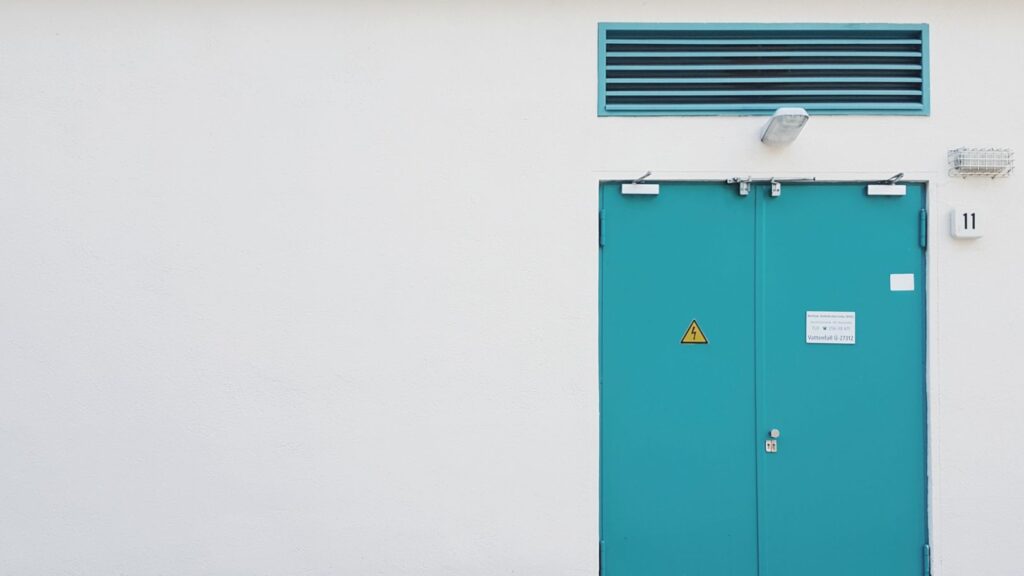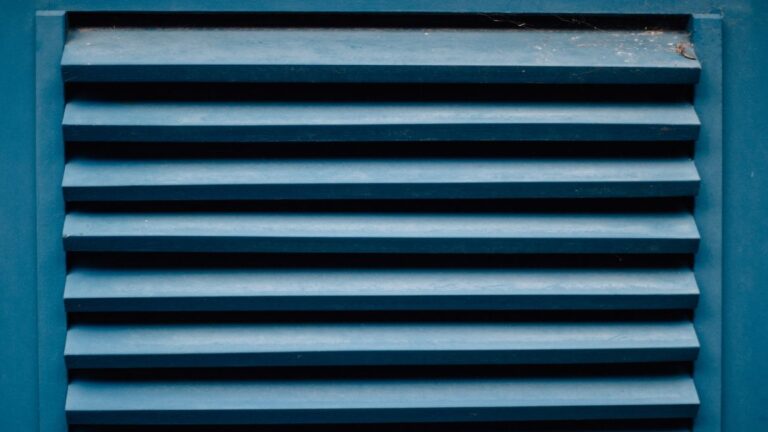You might be tempted to look for cost-saving measures if your energy costs are rising along with the temperature. One method to do this is to shut off or close the vents that regulate the temperature in various parts of your house.
Does blocking vents in the summertime help? Although closing a few heating vents during the summer can reduce energy use, this is undoubtedly not a long-term solution. For more information, please read this article.
What Are Air Vents
There are air vents visible all over your house. There may be air vents in the home’s ceiling, floors, walls, or basement (if there is one). Usually, there is a way to open and close the air vents, or there are dampers on the vents.
If your home has multiple levels, the dampers will be changed based on whether you need hot or cold air at different times of the year.
In the summer, homeowners will close the dampers on the vents that supply air to frequently unused rooms. This circulates cold air back into the home’s frequently used rooms. This is frequently a bad idea because it restricts the HVAC system’s ability to circulate the air in the house properly.
Advantages Of Vent Closure
Homeowners frequently worry about how to cut costs. One of the simplest ways to lower energy costs frequently involves making a few minor adjustments to the air vents in the house. Here are a few benefits to consider.
- Reducing airflow by closing the basement and other room vents in the summer can help lower home energy costs.
- More cooling: In addition to cooling your home’s main rooms, you should think about installing fans or air conditioning units that are only used in certain rooms.
- Saving money on your energy bill is the main benefit of closing air vents in the summer. For a few days, doing this is a great idea, but there are probably better ways to reduce your energy costs.
Consider a room dehumidifier if you’re looking for alternatives to closing air vents. These devices can clean and circulate the air in the space while lowering the humidity and moisture levels.
By doing this, you can manage the possibility of mold and mildew growth. You can also put in a dehumidifier with a draining connection to a sump pump. As a result, you won’t need to worry about emptying the unit’s water reservoir.
Disadvantages Of Vent Closure
- Air Pressure Reverses: The air in your home won’t move as freely as you’d like if your vents are closed, as was previously mentioned. You should switch up your closed vents if you don’t want obstructions to build up in your ducts.
- Leaks: If the pressure from confined air becomes too high, your ducts may begin to leak. These leaks can be challenging to find and seriously impair a house’s ability to maintain a comfortable temperature.
- A rise in electricity costs: To make up for the sudden loss of air pressure in some areas of your home caused by a leak, your HVAC system will need to work much harder, which will increase costs.
- Frozen AC Coils: If your air conditioner is running for the majority of the day, air from a leak can pass by working coils and cause them to freeze, especially if there is a lot of condensation in the air.
Can You Keep Your Vents Closed During The Summer?
The air vents in your basement can be safely closed in the summer. You should shut them down frequently rather than for a long period of time. If you want to keep your vents closed all the time, switch which ones you close every two days.
Unless you’ve left a duct closed for longer than that, reopen it to let fresh air circulate throughout your home. When you suspect an air vent leak, don’t wait until your energy costs start to soar.

An authority in your field might be able to help you. The services you’ll need to fix the leak can be estimated for free by repair professionals after they have inspected your property and found any leaks.
Is It Real That Closing Vents Can Help You Save Energy?
In order to save energy in a home, many people frequently close air vents. Contrarily, blocking vents may actually result in higher energy consumption and costs. Depending on a home’s size, HVAC systems are designed to provide heat. Because of this, your equipment is unaware that your vents are closed.
Closing air vents makes your heating system work harder than necessary to heat the area for which it was designed, which uses more energy.
Additional Solutions For Cooling Your Home
Without closing your heating vents, there are numerous ways to increase the effectiveness of your HVAC system and maintain a comfortable indoor climate during the summer.
To begin with, adding insulation to your attic can stop heat from entering your home, keeping you and your family comfortable and secure during hotter months.
Because you’ll be able to plug holes and cover vents where hot air is coming in, updating the insulation in your attic will keep your home cooler. Additionally, you have the option of selecting a more effective insulating material that will provide better protection against warm air.
One way to avoid closing the heating vents is by installing insulation. Other actions you can take this summer to increase the effectiveness of your HVAC system and maintain a comfortable temperature in your home include the following:
- Keep the area around your outdoor AC unit free from debris
- Change your filters on a regular basis
- Remove obstruction from vents
- Reduce the amount of time you spend using heaters like lamps, dryers, and ovens.
- Invest in a programmable thermostat to improve energy efficiency
When Should I Call A Professional?
It’s a good idea to hire a qualified HVAC service technician who can show you how to get the most out of your system while minimizing costs. Any time you have to deal with heating and cooling in your home, things can become complicated.
To save money, it might not be a good idea to close one vent in an attempt to direct cold or hot air to a particular room. Contact a local HVAC service technician before you decide to do something like close the vent dampers.
Conclusion
In conclusion, we can say that closing air vents in the summer may not be a wise decision because it will result in higher bills. To maintain a high energy-efficiency rating for your HVAC system, make sure to perform yearly maintenance. You can discuss when and for how long you can close your air vents by contacting your neighborhood expert HVAC service technician.





